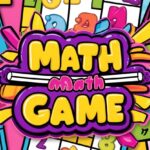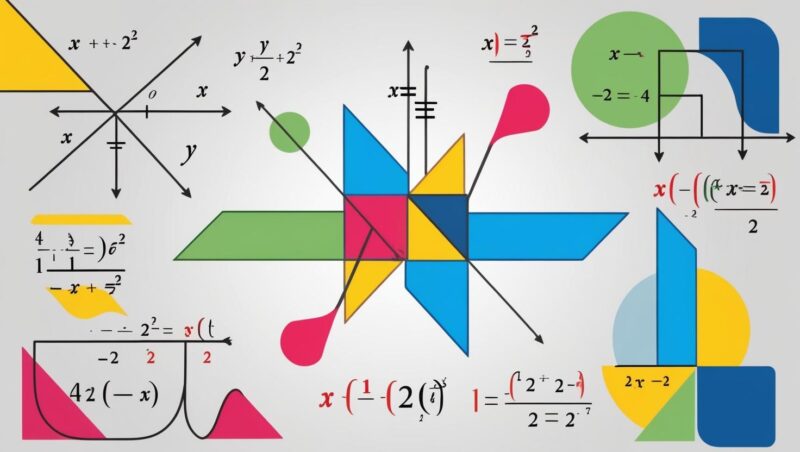
Share Post:
The role of mathematics in college education sparks ongoing debates about its importance, and whether should it be mandatory, across various fields of study. While math is undeniably crucial in disciplines like engineering, physics, and economics, its necessity in liberal arts or creative fields often comes into question.
Colleges frequently include math as a general education requirement, aiming to equip students with problem-solving skills and analytical thinking.
However, this standard raises a significant question: Is mandatory math truly essential for all students, or should it be tailored to individual academic paths and career goals?
Table of Contents
ToggleCurrent State of Math Requirements in Colleges
Although not every college mandates math courses, they are a common component of most general education curriculums. Some institutions specify particular math classes students must complete, while others simply require earning a set number of credits in any math-related courses.
While the consensus is that math should be mandatory for younger students, even in the form of games, it is uncertain whether it should be the case for older students.
Math requirements in higher education vary widely, reflecting institutional priorities and the academic focus of individual programs. However, the scope and depth of these requirements differ significantly across disciplines and institutions.
General Education Math Courses

- Most colleges mandate math courses as part of their general education curriculum.
- Common courses include algebra, statistics, and calculus, aimed at building basic numerical competency.
- These courses often serve as prerequisites for graduation, ensuring a standard level of proficiency for all students.
While these general requirements promote a baseline understanding of math, they may not align with the specific needs of every academic program.
| Program Type | Math Requirement Level | Core Subjects | Focus |
|---|---|---|---|
| STEM Programs | Advanced | Calculus, Linear Algebra, Differential Equations, Advanced Statistical Modeling | Theoretical and problem-solving skills for technical fields |
| Non-STEM Programs | Introductory | Statistics, Quantitative Reasoning | Practical applications and relevance to daily scenarios |
Challenges with Current Math Requirements
Despite the intent to create well-rounded graduates, current approaches to math education in colleges present several challenges:
| Challenge | Description | Impact |
|---|---|---|
| Preparedness Gap | Students with weaker math backgrounds may find college-level courses daunting. | Higher dropout rates or delays in graduation. |
| Rigidity in Curriculum | Some programs maintain strict math requirements that may not align with individual student needs. | May feel excessive and irrelevant for non-STEM majors, such as requiring calculus for liberal arts. |
| Relevance to Career Goals | Non-STEM students often question the practicality of certain math courses, such as algebra. | Leads to discussions on tailoring requirements to better match diverse academic and professional goals. |
Arguments for Mandatory Math Courses

Advocates of mandatory math courses emphasize the value these classes bring to a student’s overall education. Math develops quantitative reasoning and problem-solving abilities, which are essential skills in both academic and real-world settings.
These foundational skills empower students to approach challenges methodically and find effective solutions.
Foundation for STEM Success
For STEM students, math courses form the cornerstone of their advanced studies, directly supporting their future careers in fields like technology, engineering, and science.
These subjects demand a deep mathematical understanding, making such courses indispensable for building expertise in these disciplines.
Fostering Critical Thinking
Beyond technical applications, math fosters critical thinking. By working through complex equations or analyzing statistical data, students learn to evaluate information logically and systematically.
These skills are transferable and enhance performance in other disciplines, such as economics, psychology, and even the humanities, where analytical thinking is highly valued.
Enhancing Workforce Readiness
Math education contributes significantly to workforce readiness.
Employers often seek individuals who can handle numerical data and think analytically, making these skills highly valuable across a range of professions.
Requiring math courses ensures that graduates are better prepared to meet these expectations, increasing their competitiveness in a demanding job market.
Arguments Against Mandatory Math Courses

Critics of mandatory math courses argue that such requirements can place undue stress on students, particularly those who struggle with mathematical concepts.
Relevance for Non-STEM Majors
Imposing advanced math requirements on non-STEM majors often raises questions about their relevance.
For instance, a student pursuing literature or fine arts may find courses like calculus disconnected from their academic and career aspirations.
In such cases, mandatory math feels more like an unnecessary hurdle than a meaningful component of their education.
Impact on Retention and Graduation Rates
Mandatory math requirements can also negatively impact student retention and graduation rates.
Struggling with these courses may discourage students from continuing their education, particularly when they see no direct connection to their field of study.
Alternative Approaches to Math Education in College

To address the challenges of mandatory math courses, some institutions are adopting innovative approaches to math education.
Practical Quantitative Reasoning Courses
To address the challenges of mandatory math courses, some institutions are adopting innovative approaches to math education. One promising option is the introduction of quantitative reasoning courses that focus on practical, real-world applications.
- Analyzing data
- Interpreting statistics
- Making informed decisions
It is an approach that allows students to engage with math in ways that feel relevant to their daily lives and future careers, reducing the intimidation often associated with traditional math classes.
Discipline-Specific Math Integration
Another approach involves embedding mathematical concepts within discipline-specific courses. For instance, business students might learn applied math through financial analysis, while biology majors could focus on biostatistics.
Social sciences might integrate statistical methods into research methodology courses.
By weaving math directly into a student’s field of study, this approach highlights the practical relevance of mathematical principles, making the subject more engaging and applicable.
Students can better appreciate how math supports their professional goals, improving both comprehension and retention.
Flexible Math Pathways
Flexible math pathways are also gaining traction in higher education. These programs allow students to choose courses aligned with their academic and career aspirations, providing a more tailored and meaningful learning experience.
For example, students interested in the humanities might opt for courses in logical reasoning or statistics, while those in technical fields could pursue advanced algebra or calculus.
By offering multiple pathways, colleges can accommodate the diverse needs of their students, ensuring that everyone benefits from math education without imposing a one-size-fits-all model.
The Bottom Line
Math requirements in higher education remain a topic of significant debate. While they offer undeniable benefits in developing essential skills, the challenges faced by some students cannot be ignored.
Colleges must consider innovative approaches to math education that balance rigor with relevance, ensuring that all students have access to learning opportunities that support their goals.
Related Posts:
- 8 Best Resources for Math Teachers 2025 - Websites,…
- Why Are Kids Struggling with Math in School? What’s…
- Complete Guide to Teaching Math with Base 10 Blocks…
- How can I make my 3rd-grade math fun? From Bored to Board!
- 9 Fun Math Games Inspired by Real Sports That Teach…
- 14 Best Cool Math Games For Any Age











